 If you’re aware of a SPAC that is defrauding investors, you may be wondering if you should go to the Securities and Exchange Commission (SEC) and become a whistleblower. While how to best submit your case will always depend on your case, here are guidelines to help you understand the process. But one thing to keep in mind from the start: It’s important to realize that the SEC receives many tips, but it only pursues a few. So the real issue isn’t how you file a tip. Your real question should be, “How do you get the SEC to take an interest in your case?” Continue reading
If you’re aware of a SPAC that is defrauding investors, you may be wondering if you should go to the Securities and Exchange Commission (SEC) and become a whistleblower. While how to best submit your case will always depend on your case, here are guidelines to help you understand the process. But one thing to keep in mind from the start: It’s important to realize that the SEC receives many tips, but it only pursues a few. So the real issue isn’t how you file a tip. Your real question should be, “How do you get the SEC to take an interest in your case?” Continue reading
SEC Awards Four Whistleblowers A $3.5M Bounty
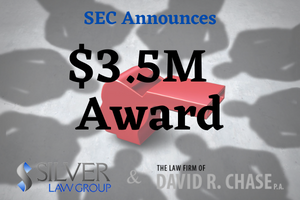 The SEC announced another whistleblower bounty that paid nearly $3.5 million to four individuals.
The SEC announced another whistleblower bounty that paid nearly $3.5 million to four individuals.
Jointly, three whistleblowers provided information to the SEC that led to the staff opening an investigation. The investigation led to a successful enforcement action by the SEC. Additionally, that information and investigation led to another agency opening its own investigation, culminating in a separate enforcement action. Continue reading
SEC Awards $6 Million To Five Joint Claimants
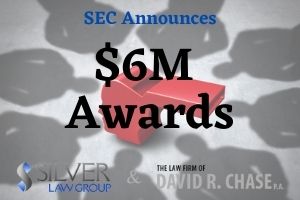 The SEC has announced its latest whistleblower bounty of $6 million to five individuals in two groups for one single covered action.
The SEC has announced its latest whistleblower bounty of $6 million to five individuals in two groups for one single covered action.
The first group, known as “Claimant 1” in the order, provided crucial documents to the SEC that led to requests for additional documentation. These documents were the crux of the SEC’s case. The individuals continued to provide documentation and information to help SEC staff to understand the company’s business practices. Continue reading
CFTC Whistleblower Award – April 2022
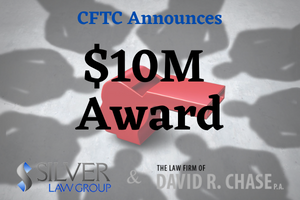 The Commodities Futures Trading Commission (CFTC) recently awarded a bounty of $10 million to a whistleblower who offered original information voluntarily. The information led to the opening of an investigation and a subsequent successful enforcement action.
The Commodities Futures Trading Commission (CFTC) recently awarded a bounty of $10 million to a whistleblower who offered original information voluntarily. The information led to the opening of an investigation and a subsequent successful enforcement action.
According to the order, the individual provided the information properly via a Form TCR that involved information previously unknown to the CFTC, and in violation of the Commodity Exchange Act (CEA.) The whistleblower was under no obligation to provide this information, and provided it at the outset of the investigation, when the CFTC was unaware of the ongoing conduct. Continue reading
CFTC Awards $625K To Four Whistleblowers
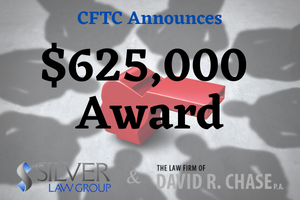 The Commodity Futures Trading Commission (CFTC) has awarded a $625,000 bounty to four whistleblowers who provided information and assistance in an investigation.
The Commodity Futures Trading Commission (CFTC) has awarded a $625,000 bounty to four whistleblowers who provided information and assistance in an investigation.
A total of nine claimants submitted award applications for this enforcement action. Of that number, only four received awards. Claimants 2, 3, 4, and 6 received bounties from the civil monetary penalties levied against the two defendants involved in the enforcement action. Claimant 4 offered the highest level of assistance and cooperation and received the largest portion of the bounty. All four offered substantial assistance that included providing names and other information which supported the Commission’s action against the defendants. Continue reading
SEC Awards $3 Million To Three Whistleblowers
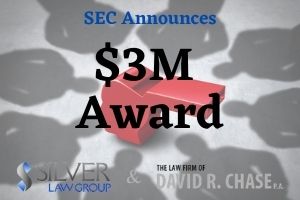 The SEC has awarded $3M to three different whistleblowers for assisting with three distinct covered actions in three separate orders.
The SEC has awarded $3M to three different whistleblowers for assisting with three distinct covered actions in three separate orders.
1. In the first order, the Claims Review Staff (CRS) awarded a bounty of $1.5 million to an individual who provided original information and voluntarily gave assistance to SEC staff that led to a successful covered action. Continue reading
SEC Awards $1.25M To Whistleblower
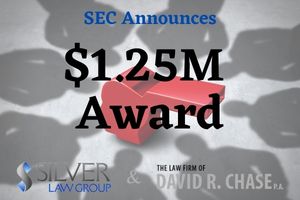 The Securities & Exchange Commission (SEC) has awarded another whistleblower bounty to someone offering information and assistance. This time, the whistleblower received an award of $1.25 million after voluntarily supplying information that resulted in a successful SEC enforcement action. Continue reading
The Securities & Exchange Commission (SEC) has awarded another whistleblower bounty to someone offering information and assistance. This time, the whistleblower received an award of $1.25 million after voluntarily supplying information that resulted in a successful SEC enforcement action. Continue reading
Fees from Cryptocurrency Providers— When Are You Paying Too Much?
 Compared to the decades of experience investors have with the S&P and NASDAQ, everyone’s a comparative rookie when it comes to cryptocurrency. And crypto’s appeal often comes from the idea that crypto exists outside of traditional banking. However, overlooked in that idea is the reality that—not unlike traditional banking and other investment platforms—many crypto services charge users expensive fees for these crypto transactions. And these fees can get very steep, very quickly. However, our experienced securities attorneys understand how the federal securities laws apply to cryptocurrency. Continue reading
Compared to the decades of experience investors have with the S&P and NASDAQ, everyone’s a comparative rookie when it comes to cryptocurrency. And crypto’s appeal often comes from the idea that crypto exists outside of traditional banking. However, overlooked in that idea is the reality that—not unlike traditional banking and other investment platforms—many crypto services charge users expensive fees for these crypto transactions. And these fees can get very steep, very quickly. However, our experienced securities attorneys understand how the federal securities laws apply to cryptocurrency. Continue reading
Is Your Pension Fund Too Expensive?
 In the past few years, industry-watchers have seen a rise in lawsuits filed against pension funds: Clients have been suing pension fund providers for charging excessive fees—even higher fees than they charge other clients for similar investment products—and other wrongdoing. And now, following a unanimous decision issued by the Supreme Court in January 2022, even more clients may begin bringing lawsuits against providers—since the Court’s ruling clarifies pension fund providers’ duties to their customers. Continue reading
In the past few years, industry-watchers have seen a rise in lawsuits filed against pension funds: Clients have been suing pension fund providers for charging excessive fees—even higher fees than they charge other clients for similar investment products—and other wrongdoing. And now, following a unanimous decision issued by the Supreme Court in January 2022, even more clients may begin bringing lawsuits against providers—since the Court’s ruling clarifies pension fund providers’ duties to their customers. Continue reading
Is Your Financial Advisor Firm Charging Too Much In Fees, Commissions, Or Interest?
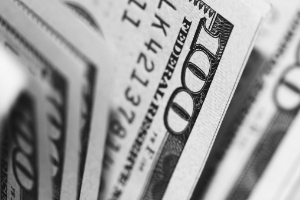 In a previous post, we began to address some general ways in which a financial advisor can overcharge investment clients. But it’s worth a bit more focus on one specific type of investment: margin accounts. Some advisors contractually steer customers into margin accounts as the default investment. But margin accounts are inherently riskier investments, and investors with these accounts are more vulnerable to being overcharged by their advisors. Continue reading
In a previous post, we began to address some general ways in which a financial advisor can overcharge investment clients. But it’s worth a bit more focus on one specific type of investment: margin accounts. Some advisors contractually steer customers into margin accounts as the default investment. But margin accounts are inherently riskier investments, and investors with these accounts are more vulnerable to being overcharged by their advisors. Continue reading
 SEC Whistleblower Lawyer Blog
SEC Whistleblower Lawyer Blog

